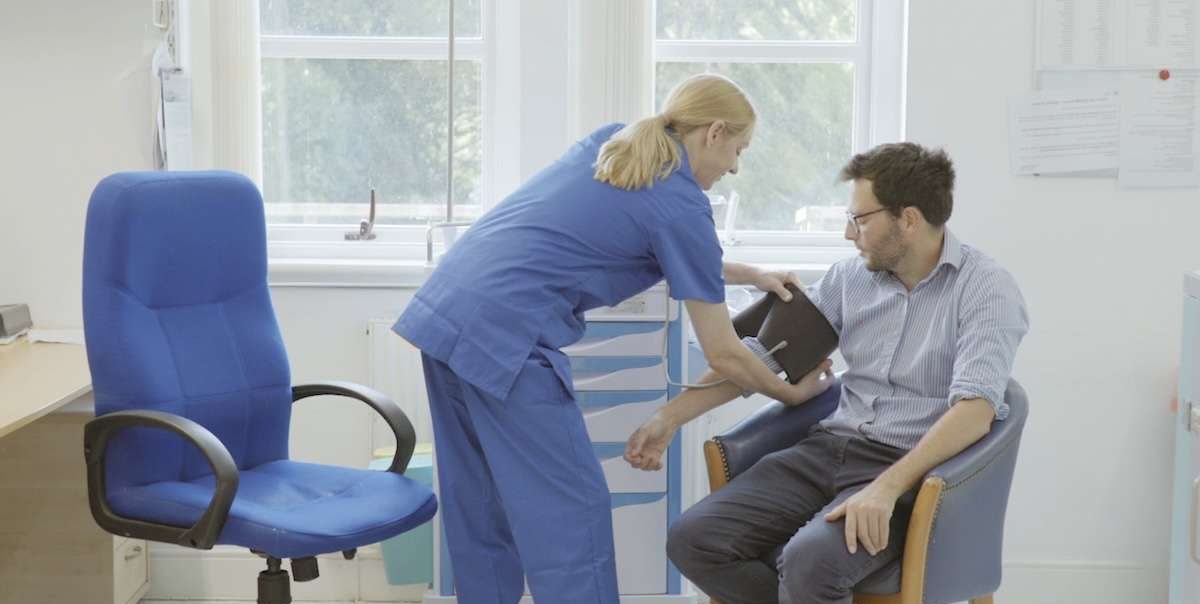
Residential Ecstasy Detox Treatment
At Castle Craig, we provide medically managed ecstasy detox in a safe and nurturing residential environment. Combining evidence-based treatment with a holistic approach, we focus on supporting your mental and physical well-being. Our dedicated medical team works tirelessly to ensure your comfort and safety throughout your stay. Set amidst the tranquil Scottish Borders, our historic grade B listed building offers a serene setting, surrounded by nature’s beauty, to inspire reflection and aid in your recovery.
This article will outline key information about detoxing from ecstasy, including how long it takes, withdrawal timelines, symptoms, stages, and medications used during detox. If you’re seeking reliable addiction treatment for yourself or a loved one, we encourage you to call us on 01721 546 263 and discover how our dedicated team can support you every step of the way.
What is Ecstasy Detoxification?
MDMA detoxification is the process of clearing ecstasy and its toxins from your body. This can often include managing ecstasy withdrawal symptoms in a safe and supportive environment to make the process as comfortable as possible. Detoxing from ecstasy is a vital first step in recovery for many, setting the stage for a healthier and substance-free future.
During MDMA detox, your body begins to adjust to functioning without the drug. Common withdrawal symptoms, such as anxiety, restlessness or sleep disturbances, may arise as your system adapts. Undertaking detox in a supportive, ecstasy rehab setting not only enhances safety but also provides reassurance, helping you take this important step toward lasting recovery with confidence and care.

Start Your Recovery at a Residential Rehab Today
What is a Medically Managed Ecstasy Detox?
A medically managed detox for ecstasy provides 24/7 care from a dedicated medical team, providing safe and effective responses to uncomfortable withdrawal symptoms. A structured approach to withdrawal and detox prioritises patient safety during the early stages of recovery, offering immediate support when needed.
At Castle Craig, our medical detox provides expert care with a compassionate approach to help you feel supported throughout. Our evidence-based care plans can not only help manage difficult withdrawal symptoms, but also prepare you for continuing with substance addiction treatment in full confidence.
Difference Between Medically Managed Ecstasy Detox and Medically Supervised Ecstasy Detox
A medically managed ecstasy detox involves constant care plus medical interventions when necessary to address any concerning withdrawal symptoms. On the other hand, a medically supervised detox offers oversight from healthcare professionals but with less intensive involvement, focusing more on monitoring progress rather than immediate intervention.
A medically managed ecstasy detox makes sure of access to professional care, combining evidence-based therapies to promote stability and recovery. This comprehensive approach not only targets the physical symptoms of withdrawal but also nurtures emotional and mental well-being. By prioritising the patient’s needs, this compassionate and focused care builds a solid foundation for lasting recovery from drug dependency.
Free Ecstasy Addiction Assessment
Castle Craig offers a confidential, free drug addiction assessment for ecstasy addiction as the crucial first step toward treatment. Our experienced team conducts these assessments in a compassionate and supportive setting, allowing you to openly share your experiences and challenges with professionals who are fully committed to your recovery.
Following the assessment, we design a personalised residential treatment plan customised to your specific needs. This bespoke plan addresses every aspect of ecstasy dependency, including physical symptoms and mental health concerns, equipping you with the therapies and resources needed to move confidently toward a healthier, more fulfilling future.


Benefits of Inpatient Residential Ecstasy Detox and Withdrawal Treatment
Choosing inpatient care for an ecstasy detox offers many advantages, including expert oversight, therapeutic support and a structured and supportive environment. The right rehab care helps you start recovery on a strong and stable footing.
Among these important benefits are several key features that aim to optimise your safety and comfort during a residential detox for ecstasy and then possibly continuing into rehab treatment. Below, we examine the specific ways that inpatient care can support your progress.
-
24/7 Medical Management for a Safe and Supported Withdrawal
Continuous medical management during withdrawal is an important factor for your safety and comfort. With round-the-clock care, any emerging symptoms can be managed promptly, reducing the risk of complications. Whether it’s managing physical discomfort or providing support and reassurance, trained professionals are always on hand to address your particular needs during detox.
This level of attention aims to make sure you never feel alone during what can be a daunting process. By having 24/7 medical support, you can focus entirely on your rehab journey, knowing that experienced professionals are there to guide and protect you every step of the way.
-
A Safe, Structured Environment Away From Triggers
Recovery could be more effective in a setting designed to remove external pressures and triggers. Private inpatient care facilities provide a controlled environment, free from the distractions and temptations of your usual surroundings. By having a secure space you focus on a route to sobriety without interruption.
Additionally, being in a dedicated detox setting provides a sense of security and reassurance. Accredited staff are equipped to provide constant encouragement and care, helping you build the emotional resilience to move forward on your path to sobriety.
-
Psychological Support With Access to Therapy and Medications
The psychological aspects of MDMA withdrawal can be just as challenging as its physical symptoms. Access to therapy provides an outlet to address difficult feelings and build coping strategies for the future. Sessions often focus on managing anxiety, depression and other psychological effects that may arise during detox.
Medications can also play a crucial role in alleviating discomfort and stabilising your mood. By combining medical and therapeutic support, you can receive comprehensive care designed to address the mental challenges during detox.
-
Personalised Detox Plans Built Around Your Health and Timeline
Each experience with ecstasy withdrawal is unique, which is why tailored detox plans are so important. Your health history, severity of dependence and personal rehab goals are all considered to create a treatment plan just for you. This aims to make sure your ecstasy detox is managed effectively and comfortably.
The flexibility of personalised plans also means adjustments can be made as your needs evolve. By taking a bespoke, holistic treatment approach, you are more likely to achieve successful progress at a pace that’s right for you.
-
A Clear Pathway Into Longer-Term Addiction Recovery
Detox is often the first step towards rebuilding your life free from ecstasy and MDMA. A structured detox plan helps set the foundation by stabilising your mental and physical health. This preparation means you’re ready to engage fully with the next stages of treatment.
From here, you can transition smoothly into comprehensive long-term recovery plans that focus on developing tools for lifelong sobriety. Whether through therapy, group counselling sessions, or ongoing aftercare options, every step is designed to guide you towards a healthier, happier future.
-
Nutrition and Restorative Therapies to Rebuild Strength
Replenishing your body is an essential part of the detox process. Good nutrition supports physical healing, boosts energy, and helps improve overall well-being. Many inpatient clinics offer meals and dietary advice to make sure you are receiving what you need to regain strength.
Restorative therapies, such as exercise or relaxation practices, complement this recovery by promoting mental clarity and reducing stress. Together, they help you restore the balance needed for sustained improvement.
-
Peer Support and a Strong Sense of Community
Connecting with others facing similar challenges can be incredibly uplifting. Sharing experiences and hearing different perspectives remind you that you’re not alone. This mutual support fosters encouragement and insight that can strengthen your determination.
A sense of community also helps rebuild interpersonal skills and confidence, both of which can be impacted by MDMA addiction. Bonds formed during this time often become a source of strength and encouragement well beyond the ecstasy detox phase.
Private Medically Managed Ecstasy Detox Centre Near Me
At Castle Craig, we can provide a safe detox from ecstasy at our private and professional ecstasy rehab facility. Our supportive residential rehab centre combines evidence-based therapies with a calming environment to provide a safe detox process from MDMA. Our fully accredited medical team can address the physical and mental symptoms for a safe ecstasy withdrawal, paving the way for long-term recovery and a healthier future.

Contact Castle Craig Residential Detox Centre
Castle Craig is located in West Linton, Edinburgh, United Kingdom, EH46 7DH. Our serene surroundings in the Scottish Borders provide the ideal privacy for a focused recovery from ecstasy misuse, while the secure and private environment supports your progress towards a healthier future.
Find Us
01721 546 263
info@castlecraig.co.uk
Castle Craig,
West Linton, Edinburgh, United Kingdom, EH46 7DH
To find out more about our residential treatment for ecstasy and other drug addictions, call us on 01721 546 263. Our experienced team is ready to help you take your first steps towards a healthier life.
-
How to Find Private Inpatient Ecstasy Detox Centres Near You
Seeking help for ecstasy or MDMA dependence is a brave and important step in your recovery. Choosing the right private rehab centre for ecstasy detox can make all the difference in your overall experience and outcome. To help you find the support that suits your needs, here are the steps you can follow:
- Search for “Private MDMA Detox Near Me” or Include Your Location: Start your search online with phrases like “Private inpatient ecstasy detox centre near me” or “Ecstasy detox clinic in the UK.” Adding your town or city will help narrow down the options to those closest to you. This simplifies the process of finding a suitable location, making sure the rehab clinic is convenient for travel or family visits.
- Look for Medical Supervision and 24/7 Support: Detoxing from ecstasy can bring challenging withdrawal symptoms that require close attention. Opt for a detoxification centre with medically managed care and round-the-clock support, so you have immediate assistance if your symptoms intensify. Safety and comfort should always be a top priority during detox.
- Check Online Reviews and Reputation: Reading reviews from previous patients can give you a clear picture of a substance addiction clinic’s quality of care. Look for testimonials that highlight professional care, compassionate staff and overall success rates.
- Call and Ask If They Offer Residential Detox Treatment: Some drug treatment facilities may only provide outpatient services, which might not be enough if you need continuous care during withdrawal. Contact the clinics you are considering and ask if they offer residential treatment tailored to those detoxing from MDMA. Knowing the specifics of their care plans can guide your decision.
- Enquire About Costs and Admissions Process: The costs for drug treatments vary between centres, and knowing the scope of any potential charges can help you plan ahead. Ask about the total fees, what’s included and whether a free private addiction assessment is available as part of admissions. Don’t hesitate to request more details to fully understand what to expect.
- Check If They Accept Health Insurance: If you have private medical insurance, ask about coverage. Many leading rehab centres accept policies from major providers. Confirm which costs are covered and whether there are any out-of-pocket expenses to consider. This can significantly affect the affordability of treatment.
Find Out About Our Residential Opioid Detox Treatment
At Castle Craig we provide free addiction assessments as part of our admissions process. This allows us to understand your specific situation and recommend the most effective ways to address your particular challenges with ecstasy misuse,
By using the information gathered via the private assessment, we can offer medically managed detox to support your unique health needs. Combined with our comprehensive care plans and structured support, we provide an evidence-based approach that addresses your unique challenges with care. Contact us today on 01721 546 263 to start your road to sobriety.
Free Ecstasy Addiction Assessment
Taking the first step and asking for help can feel daunting, but our team is here to assist you.
Signs, Symptoms and Effects of Ecstasy Withdrawal & Detoxification
Detoxing from ecstasy is often an integral step in the recovery process. Understanding what happens during withdrawal can help you prepare and seek the right support. Below are some common signs, symptoms and effects of ecstasy withdrawal. Keep in mind that this is not a full list, and experiences may vary.
-
Early Signs of Ecstasy Withdrawal
MDMA withdrawal symptoms often begin within 12 to 24 hours after the last dose was taken and can vary in intensity. Early signs usually reflect your body’s initial reaction to the absence of the drug.
- Low mood, emotional flatness or feeling ’empty’: Many people feel a loss of joy or motivation as their mood begins to decline.
- Mild anxiety or restlessness: You may feel tense or uneasy, with occasional waves of nervousness or irritability.
- Difficulty concentrating and mental fog: Your thought processes might feel sluggish or muddled, affecting daily tasks and conversations.
- Fatigue or unusual tiredness: Low energy levels are common, leaving you feeling drained despite minimal activity.
- Sleep disturbances, including vivid or unsettling dreams: Trouble falling or staying asleep can arise, often accompanied by intense or unpleasant dreams.
-
Moderate to Severe Symptoms of Ecstasy Withdrawal Syndrome
Moderate to severe symptoms typically develop between 24 and 72 hours after use. Symptoms may grow more intense, reflecting your body’s ongoing adaptation.
- Intense depression and emotional numbness: You may experience profound sadness or feel disconnected from your emotions entirely.
- Severe anxiety, panic attacks and heightened irritability: Feelings of fear and extreme reactions to stress may become more pronounced during this stage.
- Persistent insomnia or disrupted sleep cycles: Chronic difficulties getting restful sleep can further impact your emotional and physical well-being.
- Strong drug cravings and compulsive thoughts about using: A powerful desire to return to ecstasy use can occur, making this stage particularly challenging.
- Paranoia, mood swings and difficulty managing daily life: Fluctuating moods and intrusive thoughts can make normal activities seem overwhelming or unmanageable.
-
Psychological Effects of Ecstasy Withdrawal
Psychological symptoms may start early in MDMA withdrawal and persist for weeks or months. These effects underline the importance of professional support during your ecstasy detox.
- Persistent low mood and loss of interest or pleasure (anhedonia): It can feel like nothing brings joy or satisfaction, even activities you once loved.
- Feelings of hopelessness, emptiness or despair: Emotional lows might deepen, accompanied by a sense of helplessness.
- Social withdrawal and detachment from others: Avoiding friends or family becomes common, even with those offering support.
- Reduced motivation, focus and emotional stability: Everyday tasks can feel overwhelming, and managing emotions might become harder than usual.
- Increased risk of self-harm or suicidal thoughts in severe cases: Without proper guidance, some may experience distressing thoughts or behaviours linked to despair.
-
Physical Signs and Symptoms During Ecstasy Detoxification
Physical symptoms of MDMA withdrawal often complement emotional and psychological effects and can begin soon after stopping ecstasy use.
- Muscle tension, aches and general discomfort: Stiffness, soreness, or a sense of physical discomfort may be widespread.
- Headaches and migraines: These can range from mild to severe, contributing to feelings of unease.
- Tremors, shaking or jaw clenching (bruxism): Uncontrolled muscle movements often occur as the body adjusts to detoxification.
- Sweating, chills and changes in body temperature: Your body may struggle to regulate temperature, causing warm flashes or sudden chills.
- Nausea, digestive upset and low energy levels: Symptoms like queasiness or stomach discomfort may deter normal eating habits.
-
Long-Term Effects Without Proper Ecstasy Detox Support
Choosing not to seek professional help can lead to lasting challenges that impact many areas of life over time.
- Ongoing depression, anxiety or emotional instability: Without the correct support, unresolved mental health effects may continue long after an ecstasy detox.
- Memory issues and long-term cognitive decline: Difficulties with focus and memory may worsen in the absence of medically managed detox support.
- Disrupted sleep patterns and chronic fatigue: Long-term insomnia can lead to exhaustion that impacts daily functioning.
- Relationship breakdowns and social isolation: Withdrawal symptoms can strain relationships and deepen feelings of loneliness.
- Increased risk of relapse and co-occurring mental health disorders: Without treatment, the temptation to use ecstasy again or develop other mental health issues rises significantly.
Understanding the symptoms and side effects of withdrawing from ecstasy highlights the need for medical assistance, as detox should not be attempted by yourself. A medically managed inpatient detox provides the necessary foundation for more effective, safer recovery process.

Medications Used for Ecstasy and MDMA Detoxification
Medication assisted treatment during ecstasy and MDMA detoxification may or may not be necessary, depending on your specific needs and the severity of your addiction. Medical professionals assess each case, creating treatment plans accordingly for the best possible outcomes. Below are some medications that may be considered during the detox process:
- Fluoxetine (Prozac): Fluoxetine may be prescribed to manage low mood or depressive symptoms that arise during withdrawal, helping to stabilise emotions over time.
- Sertraline (Lustral): This medication can provide relief from heightened anxiety or depression, supporting better emotional balance during the early stages of withdrawal.
- Zopiclone: Zopiclone may be offered on a short-term basis to address insomnia or difficulty sleeping, promoting restful and restorative nights.
- Melatonin: This natural supplement aids in regulating sleep cycles, particularly for individuals experiencing disrupted circadian rhythms during detox.
- Diazepam (short-term use): For severe anxiety or agitation, Diazepam may be used briefly to help calm nerves and reduce distressing withdrawal symptoms.
- Paracetamol: Paracetamol is often used to manage common withdrawal-related discomforts such as muscle aches, headaches, or general physical pain.
- Ibuprofen: This anti-inflammatory drug helps alleviate muscle stiffness, joint pain, or tension often associated with withdrawal.
- Electrolyte supplements: Electrolyte supplements can restore balance to the body, particularly when dehydration or energy depletion occurs during withdrawal.
- Vitamin B complex: Vitamin B helps support nerve function, boost energy levels, and reduce symptoms of mental fog or fatigue during recovery.
- Multivitamins: Multivitamin supplements contribute to restoring overall health by addressing potential nutrient deficiencies caused by substance use or poor diet.
At Castle Craig, our approach to the use of ecstasy detox medications is undertaken with the highest level of responsibility to make sure that they do not result in a new addiction. We appreciate that this may be a concern for some patients, and we are here to assure you that detox medicines for MDMA are prescribed only when medically necessary and are carefully managed under the supervision of our Consultant Psychiatrist and trained medical staff.
Our goal is to alleviate withdrawal symptoms safely while focusing on your overall recovery and the goal of abstinence. By using evidence-based protocols and regularly assessing your progress, we only use detox medications as a short-term tool to support your transition into sobriety, always prioritising your long-term health, well-being and abstinence.

Contact Castle Craig Today
Take the first step towards recovery by contacting Castle Craig. Our team can guide you through our residential treatment options, admissions process and help you book a free addiction assessment tailored to your unique needs.
Call us today on 01721 546 263 to speak to our supportive team. You can also complete the online form here, and we’ll get back to you promptly. Rest assured, your recovery can start today.
Does Health and Medical Insurance Cover Ecstasy Detoxification Treatment?
Yes, health and medical insurance typically cover ecstasy detoxification treatment in the UK, but the extent of coverage depends on the specifics of your insurance policy and provider. Levels of support can vary, so it is crucial to review your plan and speak directly with your insurer to confirm what is covered.
If your treatment is approved and covered, Castle Craig accepts private health insurance from a range of major providers. Our experienced team is available to help you understand our detox treatments, liaise with your provider, and guide you through the insurance admissions process. Complete our confidential online form today to request a call back from a member of our team.
How Much Does Residential Ecstasy (MDMA) Detox Cost?
The cost of a standalone ecstasy detox in the UK typically ranges from £1,000 to £6,000 for a 7-10-day programme. However, detox is most effective when incorporated into a comprehensive treatment programme, which this cost does not include. Within a residential setting, daily drug rehab costs including detox ranges from £650 to £1,500, with weekly costs between £4,500 and £10,000.
Costs can vary based on individual needs, the complexity of the detox process, and programme length. A personalised consultation can provide a clearer understanding of potential costs tailored to your specific circumstances and the care required for a successful recovery. At Castle Craig all substance addiction treatments are included in the pricing, so you won’t have any extra costs should you wish to stay for a longer period. To learn more about the available care plans and accommodation we provide, call us on 01721 546 263 to speak with one of our supportive team.
Ecstasy (MDMA) Detox Timeline and How Long It Takes
If necessary, detoxing from ecstasy is often the first step in a comprehensive rehabilitation process. While we’ll explore typical detox timelines and durations, it’s essential to remember that recovery doesn’t end at detox. A full rehabilitation programme is recommended, as advised by healthcare experts after assessment, to achieve long-term, sustainable good health.
-
Stage 1: Early Withdrawal Symptoms (6–12 Hours After Last Dose)
The first signs of ecstasy withdrawal can begin within 6 to 12 hours after the last dose. During this phase, individuals may start to feel fatigued, irritable, or anxious. It is not uncommon to experience mood swings, restlessness, and an initial sense of unease as the body adjusts to the absence of the drug.
Physical symptoms can also accompany these early signs, such as mild headaches or a lack of appetite. Although this stage of ecstasy withdrawal can feel unsettling, it is a natural part of the detox process and signals the body beginning to eliminate the substance. Support and monitoring during this time can help ease discomfort and provide reassurance.
-
Stage 2: Peak Ecstasy Withdrawal Symptoms (24–72 Hours)
The peak phase of withdrawal, occurring within 24 to 72 hours, is often the most challenging stage of ecstasy detox. Individuals may experience heightened anxiety, depression and intense cravings. Sleep disturbances such as insomnia or vivid dreams are also common during this stage of the ecstasy detox timeline.
Physically, this phase can include muscle aches, headaches or a general sense of lethargy. The emotional and physical challenges may feel overwhelming, but they are temporary. With proper care, such as medical and therapeutic support, this critical phase of detox can be safely managed to make the detox process as stable as possible.
-
Stage 3: Subsiding Symptoms and Stabilisation (3–7 Days)
By the third day and into the first week, many of the acute withdrawal symptoms begin to subside. Individuals may notice a gradual improvement in their mood and a reduction in physical discomforts. While cravings may still occur, they are often less intense than during the peak phase.
Stabilisation focuses on addressing lingering symptoms and beginning psychological recovery. This stage is crucial for preparing individuals for the next steps in rehab, such as therapy and lifestyle adjustments. Engaging with structured support during this period lays the groundwork for long-term progress and prevents setbacks.

Related Guides on Medically Managed Residential Detox
Detox Centre | Inpatient Detox | Alcohol | Drugs | Cocaine | Heroin | Crystal Meth | Valium | Tramadol | Benzodiazepines | Xanax | Codeine | Opioid | Ecstasy | Morphine |
Can you Detox from Ecstasy at Home?
While detoxing from home is possible, detoxing from ecstasy in a residential treatment setting is safer, as it includes 24-hour management and specific care from medical professionals. This reduces the risks associated with withdrawal and makes sure you are supported throughout the process.
For specific detox treatment needs and personalised guidance, it’s best to call Castle Craig on 01721 546 263 and speak directly with our friendly team. They can signpost you towards the safest and most effective treatment options for your recovery.
Inpatient Medically Managed Ecstasy Detox Treatment Admissions Process
At Castle Craig, our inpatient medically managed ecstasy rehab is carefully tailored to meet individual needs. If detox is needed for you, you can rest assured that you can receive the right level of care and support for a safe and effective detox experience. If you decide you would like our help, here is what you can expect during our straightforward admissions process:
- Make an Initial Enquiry to Begin the Ecstasy Detox Admissions Process: Get in touch with our team to start the process. We’ll answer any questions and provide information on the next steps.
- Undergo a Confidential Pre-Admission Assessment With a Medical Professional: A thorough assessment will be conducted to understand your medical history, current health, and specific healthcare needs.
- Receive a Personalised Treatment Plan for Inpatient Ecstasy Withdrawal Support: Based on your assessment, you’ll receive a customised plan designed to provide the best possible care.
- Schedule Your Admission Date for Residential Ecstasy Detox Treatment: Once ready, you can set an admission date that works for you, making sure of a smooth transition into care.
- Arrive at the Detox Centre for Medical Intake and Managed Withdrawal: Upon arrival, you’ll undergo an intake process and begin your ecstasy detox in a safe, medically managed environment.
Each step of our admissions process for ecstasy and MDMA rehab treatment is thoughtfully designed to provide care and compassion during a challenging but transformative time. Taking this first step can lead to a healthier life, and our team is here to guide you throughout your journey.
Questions About Detox for Ecstasy?
Contact us to discuss your treatment needs with a licensed clinician.
Find Out About Our Residential Drug Detox Treatment
At Castle Craig, we provide free residential drug addiction assessments to help you take the first step towards sobriety. Our dedicated team will evaluate your unique needs and provide expert guidance in a safe, supportive environment.
Our team can create a tailored treatment plan for you and provide an accurate breakdown of the costs associated with residential rehab. Call today on 01721 546 263 to learn more about our personalised care plans and detox treatments for a sustainable recovery, or fill out the form below.
Free & Confidential Assessment
Compassionate, expertly delivered evidence-based practices and a patient-centred approach are at the heart of our treatment model. Request a call-back from one of our professionals on any day of the week.
-
Statistics on Ecstasy in the UK
- In 2023, approximately 777,000 individuals aged 16 to 59 reported using ecstasy in the past year, marking a 21% decrease compared to 2020.
- Between April 2023 and March 2024, 36,527 adults in England sought treatment for non-opiate drug issues, including ecstasy, with 47% successfully completing their treatment.
- Castle Craig reports that ecstasy addiction often co-occurs with mental health disorders like depression.
- MDMA use has been linked to memory loss and cognitive impairments, particularly in heavy users. Private rehab centres provide cognitive-behavioural therapy to mitigate these effects and support recovery (Neurology Journal).
- In 2023, 79 drug-related deaths in the UK were attributed to MDMA, a significant increase from the previous year.